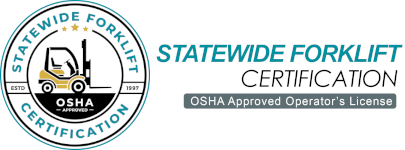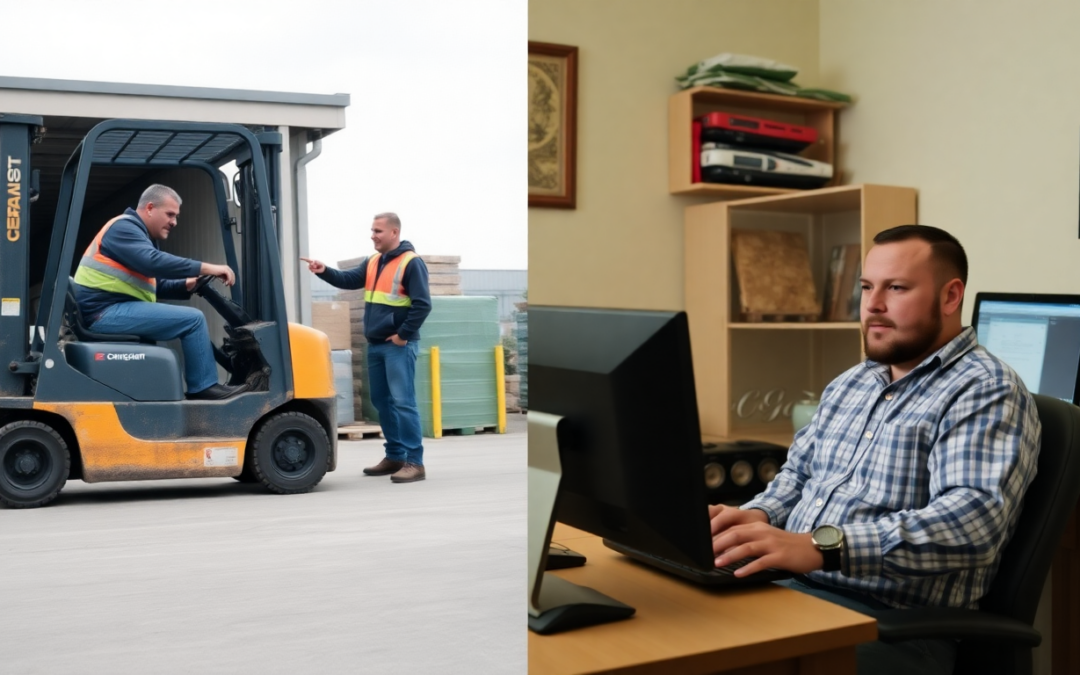Forklift certification is essential for anyone looking to work in roles requiring heavy machinery operation. It ensures safety, compliance with regulations, and better job opportunities. But with so many options available, how do you choose between online and in-person training?
Both formats have their advantages and disadvantages, and the right choice depends on your learning style, schedule, and goals. Let’s break down the key differences to help you make an informed decision.
The Case for Online Forklift Certification
Online forklift certification programs have gained popularity due to their flexibility and convenience. Here’s what makes them an attractive option:
Pros
- Flexible Schedule: Learn at your own pace, anytime and anywhere. Ideal for people juggling work, family, or other commitments.
- Cost-Effective: Online courses are often more affordable than in-person training, saving on travel and lodging expenses.
- Quick Completion: Many online programs can be completed in just a few hours or days, allowing you to get certified faster.
- Access to Resources: Online courses often include downloadable guides, video tutorials, and quizzes that you can revisit anytime.
Cons
- No Hands-On Training: Online programs usually lack practical, real-world forklift operation experience, which can be crucial for mastering the skill.
- Limited Employer Recognition: Some employers may not accept online-only certifications, especially if they lack a hands-on component.
- Risk of Scams: Not all online programs are reputable. Be cautious of courses that promise quick certification without any assessment of skills.
Best For:
- Experienced operators looking to renew their certification.
- People in remote areas where in-person training isn’t accessible.
- Those who need a basic understanding of forklift safety and regulations.
The Case for In-Person Forklift Certification
In-person forklift certification programs are the traditional approach, offering both theoretical and hands-on training. They remain a gold standard for many industries.
Pros
- Practical Experience: Get real-world training on forklift operation, including maneuvering, lifting, and handling loads.
- Direct Instructor Feedback: Learn from certified trainers who can correct your technique and answer questions on the spot.
- Higher Employer Acceptance: Most employers prefer candidates with in-person training because it demonstrates hands-on competence.
- Compliance Assurance: In-person programs are often tailored to meet OSHA or other local regulatory requirements.
Cons
- Less Flexible: Fixed schedules and locations may not work for everyone, especially those with time constraints.
- Higher Costs: In-person training is often more expensive, factoring in travel, tuition, and potential missed workdays.
- Time Commitment: Classes may take a few days or weeks to complete, depending on the provider.
Best For:
- Beginners who need hands-on forklift operation experience.
- Workers in industries with strict safety regulations, like construction or warehousing.
- Anyone seeking a certification widely recognized by employers.
What to Consider When Choosing a Program
Before deciding, ask yourself these questions:
- What are my goals?
- If you’re looking to gain hands-on skills or meet employer requirements, in-person training is likely the better option.
- For a quick refresher or compliance renewal, online training may suffice.
- What does my employer require?
- Check if your employer has specific certification preferences or mandates.
- What is my budget?
- Online programs are often cheaper, but in-person training provides a more comprehensive experience.
- How much experience do I have?
- Beginners should prioritize hands-on training, while experienced operators may benefit from the convenience of online options.

